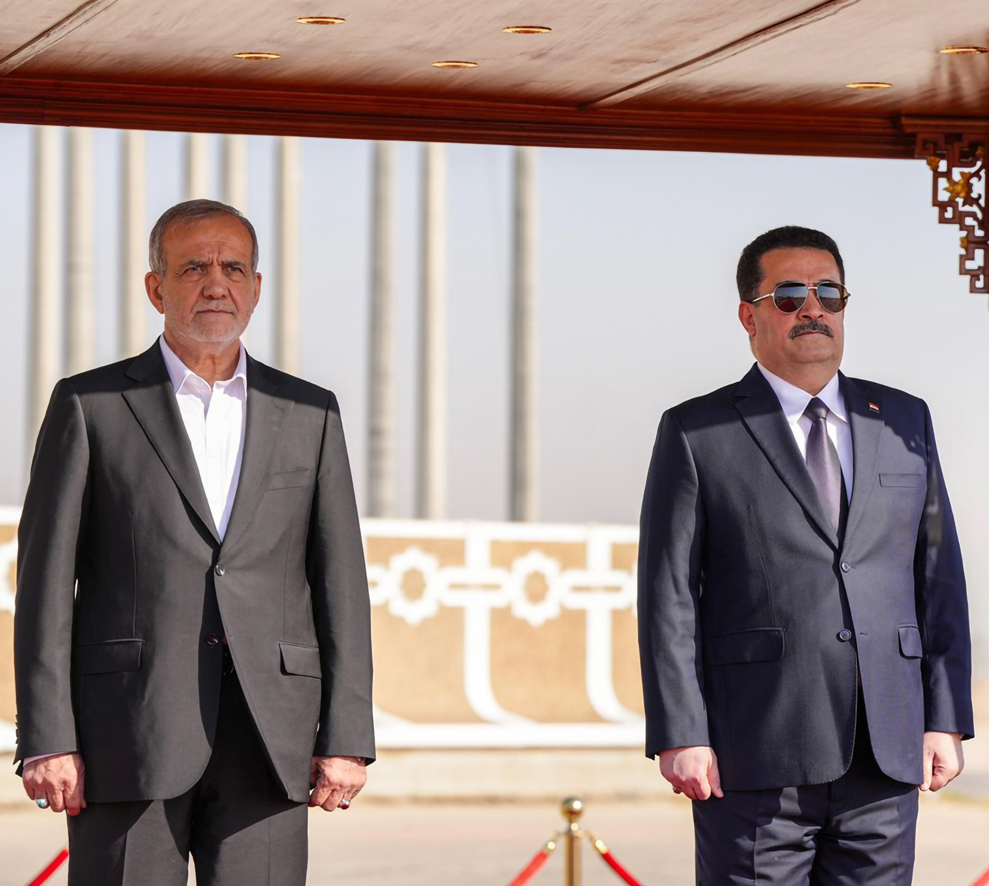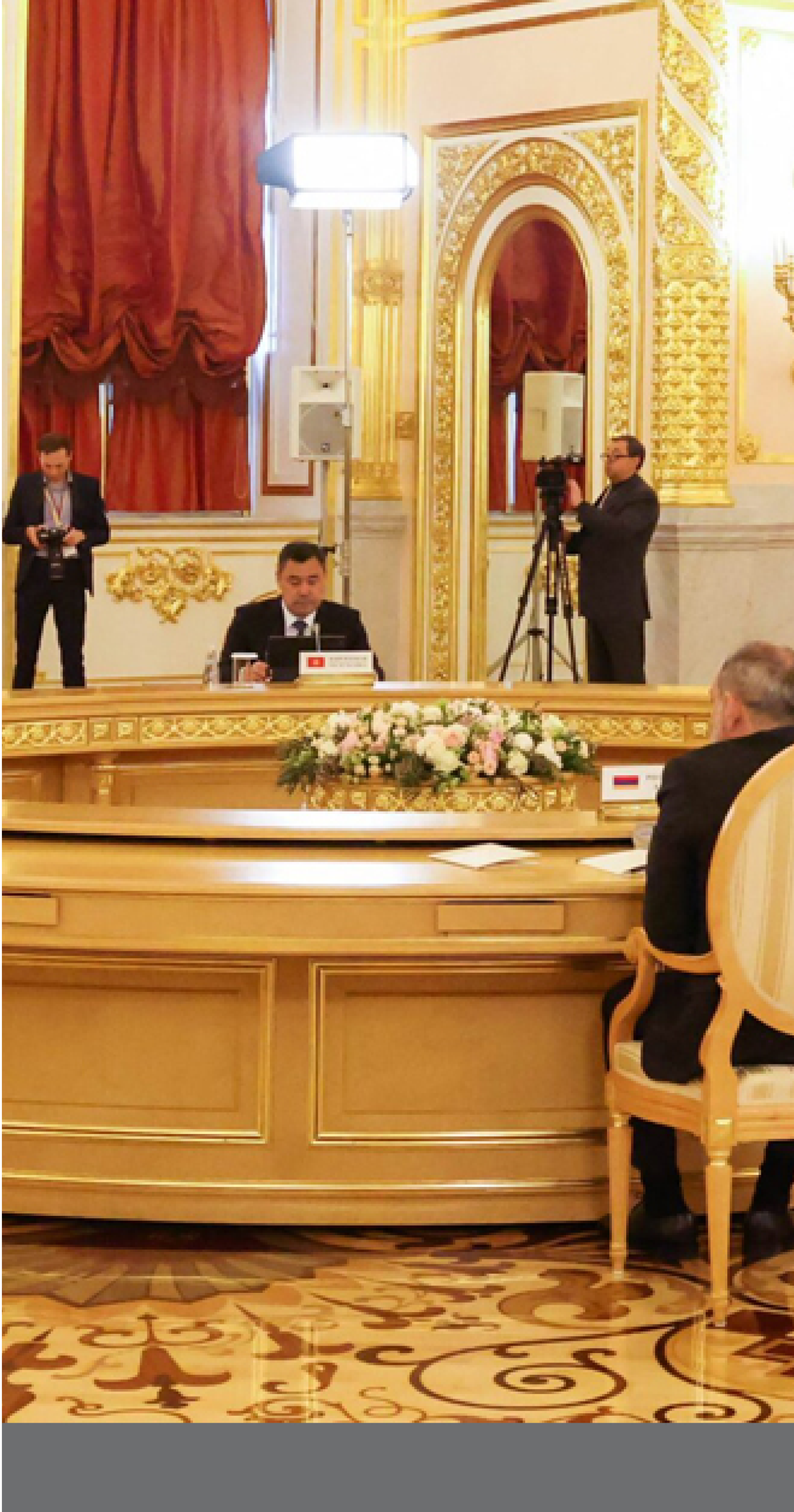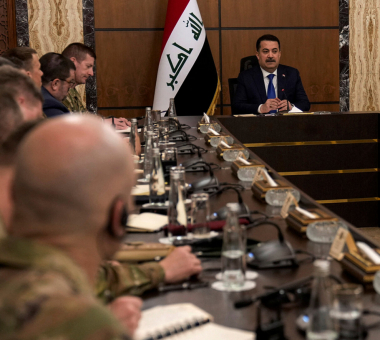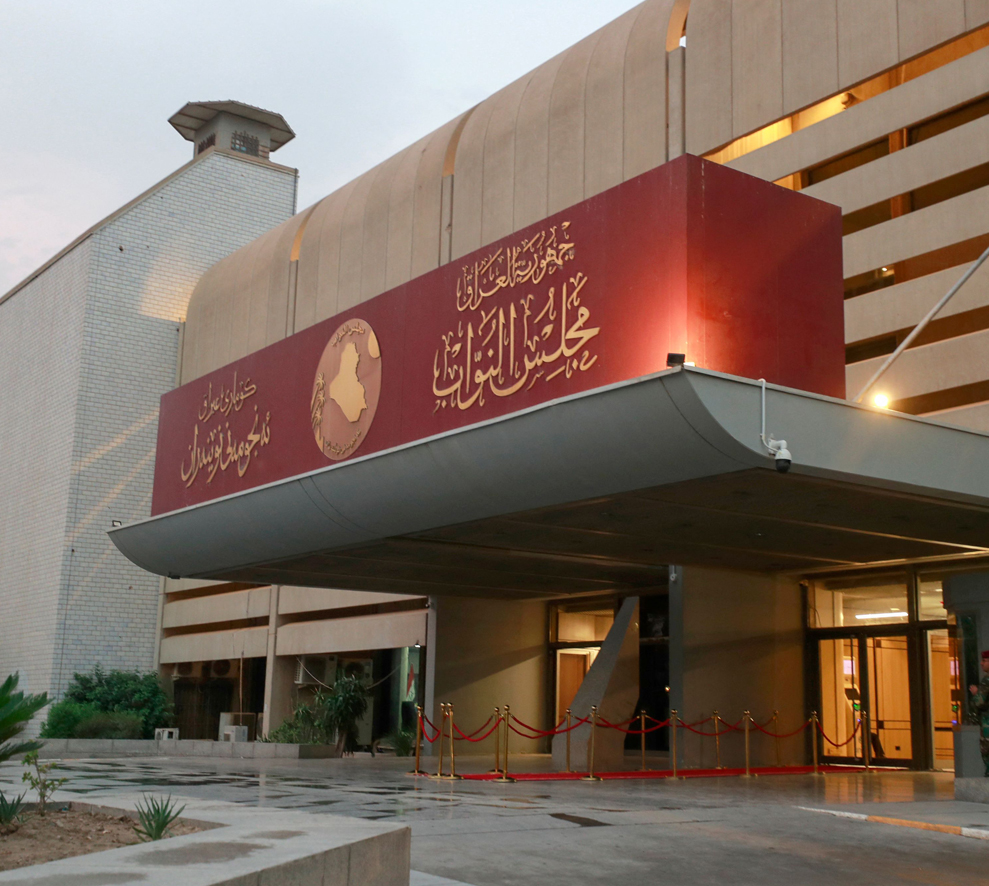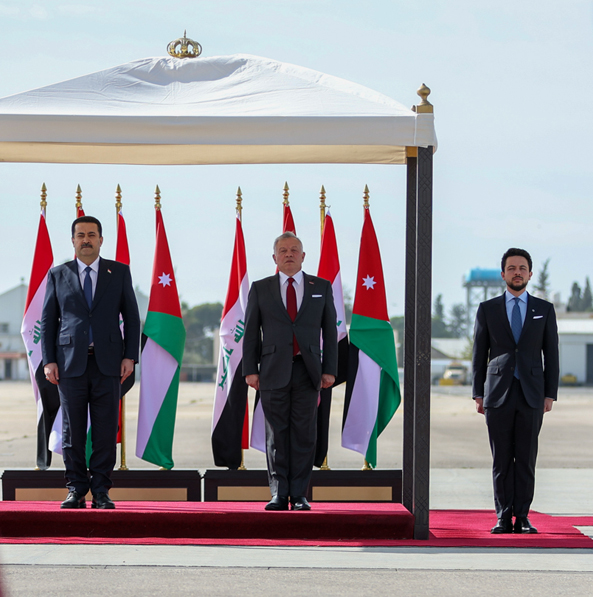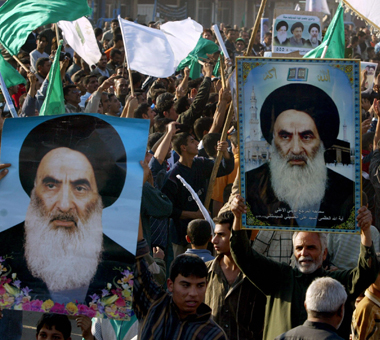Iranian President Masoud Pezeshkian visited Iraq on September 11, 2024. His first official visit aboard since taking office July 6, the presidential trip comes in light of many complex files that the region has witnessed, coinciding as it does with the war in Gaza Strip, and in light of many mutual files that bring together the two countries on security, economic and political levels.
This visit to Iraq is the third by an Iranian president since the 1979 Iranian Revolution and the change of the Iraqi regime in 2003. The first visit was by President Mahmoud Ahmadinejad in 2008; the second by President Hassan Rouhani in 2019; in 2021, the late President Ibrahim Raisi visited Iraq in his capacity as head of the Iranian judiciary and official news reports indicated that a visit to Iraq was on the president’s agenda before his death in the crash of the presidential plane on May 20, 2024. On the other hand, all Iraqi presidents since 2005 have visited Iran at least once, with its prime ministers traveling to Iran once every six months on average.
Implications of Choosing Iraq for Pezeshkian’s First State Visit
Pezeshkian’s visit to Iraq, like the visit that was scheduled for Raisi, his predecessor, reflects the close relations between the two countries and their mutual security, economic, and political files. However, Pezeshkian’s trip comes in a context in which security issues dominate the Iranian agenda, especially in light of the anticipation of Iran’s response to the assassination of the head of the political bureau of Hamas, Ismail Haniyeh while he was hosted in Tehran on July 31, 2024, which revealed the extent of Israeli information and intelligence superiority.
Iran has long accused its neighbors in the Azerbaijan and the Kurdistan region as the main arenas for the activity of Israeli intelligence services against it. In addition, this visit carries many messages and indications.
First, the visit sends a message to both the United States and Israel regarding Iran’s vital and strategic interests in Iraq, and about its priority in the Iranian security and defense arrangements for the next phase of the war in Gaza Strip. The president’s visit, for instance, includes a tour of most major Iraqi cities, including Baghdad, Basra, and Erbil.
Second, the visit reflects the growing Iranian influence in Iraq and, especially when compared to the previous visits of other Iranian presidents, Pezeshkian’s extensive tour inside Iraq represents the peak of Iran’s involvement in Iraqi internal affairs. For instance, neither they nor Turkish President Recep Tayyip Erdogan, who visited Iraq for the first time in nearly a decade on April 22, 2024, visited Basra. This is despite Turkish officials indicating that Erdoğan might visit the third largest city in Iraq, which has a central role in the development project extending from Basra to Turkey.
Third, the visit confirms Iran’s commitment to supporting its proxy armed factions in Iraq, which, before the war in Gaza Strip, had been limited to support from the Revolutionary Guards and the Quds Force. Now, Iran’s support publicly includes the political level as represented by the presidency and the Iranian government. This display of Iranian political support for Iraq comes after some observers declared that the reformist government in Tehran may be more cautious in supporting the armed factions in the region.
In conclusion, it seems that the course of the war in the Gaza Strip, and the involvement of the Iraqi factions in it as a secondary front, has prompted Tehran to provide all forms of material and moral support, especially after the mutual strikes between those factions and the American forces, and for its role in the broader Iranian strategy to pressure the American forces to leave Iraq and Syria.
In addition, Iran’s delay in responding to the assassination of Hamas leader Haniyeh, and perhaps postponing it indefinitely, especially after the Israeli preemptive strike that hindered Hezbollah’s response to the assassination of its leader Fuad Shukr, forces Tehran to strengthen its communication with those factions to enhance its morale and roles in the region.

Fourth, strengthening economic relations, which is an important message primarily directed to the Iranian domestic audience. The election campaign of Pezeshkian focused on economic issues. Given the country’s need to find a way out of the severe American sanctions affecting various economic indicators and infrastructure, Iraq is considered the primary gateway to achieving this goal.
The economic aspect is evident in the composition of the delegation accompanying the president, which includes the foreign ministers, oil ministers, housing ministers, and the governor of the Iranian central bank. Iranian Ambassador to Iraq Mohammad Kazem has repeatedly stated that Iran is set to sign 30 comprehensive agreements with Iraq covering security, trade, energy, and water.
This includes strategic joint projects between the two countries, foremost among them the Basra-Shalamcheh railway project, which had not made much progress during previous Iraqi prime ministers’ terms, except for Mustafa al-Kadhimi’s government, which saw the signing of a joint agreement that included a plan to complete the railway link.
In addition, resolving the issue of Iranian funds in Iraq, estimated at $11 billion, will be one of the most important items on the visit agenda. Previously, Iraq had paid Iran directly for gas and electricity. However, the tightening of U.S. sanctions on Iran led to the accumulation of these Iranian debts owed by Iraq during 2021 and 2022.
Although Iraq managed to find alternative mechanisms by using the accumulated Iranian funds in the Iraqi TBI Bank to purchase goods on behalf of Iran, the Iraqi government has struggled to repay the Iranian debts, especially with the strict controls imposed by the U.S. Federal Reserve on dollar transactions in 2023. These controls have limited the ability of Iraqi banks, particularly TBI Bank, to conduct commercial transactions in dollars. Additionally, the Iranian funds are held in Iraqi dinars, preventing Iran from using them to purchase goods from other countries that are not subject to sanctions.
Issues Affecting Iraqi-Iranian Relations
This visit could represent a challenge for the government of Iraqi Prime Minister Mohammed Shia’ al-Sudani. It brings additional pressure, especially since the Iraqi government continuously needs the parliamentary support of the “State Administration” coalition, particularly the Coordination Framework. Despite the government’s achievements in the economic, service, and developmental sectors, some Iraqi factions supporting it are considered traditional allies of Tehran. This factor is taken into account by the government, especially in several issues.
Scheduling the Withdrawal of U.S. Forces
The withdrawal of U.S. forces from Iraq is considered one of the highest priorities on the Iranian agenda. It is likely that the government anticipated Pezeshkian’s visit and outlined its positions on the issue of U.S. troop withdrawal. Iraqi Defense Minister Thabet al-Abbasi declared on September 8 that the American withdrawal would be completed by 2026. While this statement may serve political purposes and aims to mitigate the pressures exerted by Iran and its allies in Iraq on the government, it will cast a shadow over the trajectory of relations with the United States, which is undergoing a process of repositioning itself in the region. Since there may be a major fundamental shift in America’s approach to regional issues following the U.S. elections in November, Iraq may not be in the best position with a new U.S. administration.
Kurdish Opposition Groups on the Iranian Border
The issue of Kurdish opposition groups based in the border areas with Iran is one of the contentious matters in bilateral relations. Iraq signed a security agreement with Iran in late September 2023 that calls for evacuating the Kurdish opposition headquarters located on the border, as these groups pose a significant concern to Tehran. Given the importance of this issue, Iraqi National Security Advisor Qassim al-Araji disclosed shortly before Pezeshkian’s visit that there were Iraqi plans to resettle the Iranian Kurdish opposition in a third country, in coordination with the United Nations, in an attempt to resolve this issue.
Mediation and De-Escalation
Iraq plays a pivotal role in conveying messages of mediation and de-escalation between various countries and actors in the region. It has previously played a role in reducing tensions between the United States and Iran and is currently acting as a mediator between Turkey and Syria. Additionally, the al-Sudani government previously facilitated an Iranian-Egyptian meeting with diplomatic representation in 2023.
Finally, the visit of the Iranian president raises an important question about the future of Iraqi-Iranian relations: Will Iraq be heading towards fundamental and decisive changes? An analysis of the factors and variables suggests that changes in Iraq will not impact its political or security relations with Iran. The relationship between the two countries is deeply intertwined and surpasses political changes as well as internal or external conditions. This relationship may become more profound in its scope and roles, especially in light of the major changes occurring in the region, which increase the need for both countries to maintain their strategic and security ties.
Keep in touch
In-depth analyses delivered weekly.

Related Analyses:







